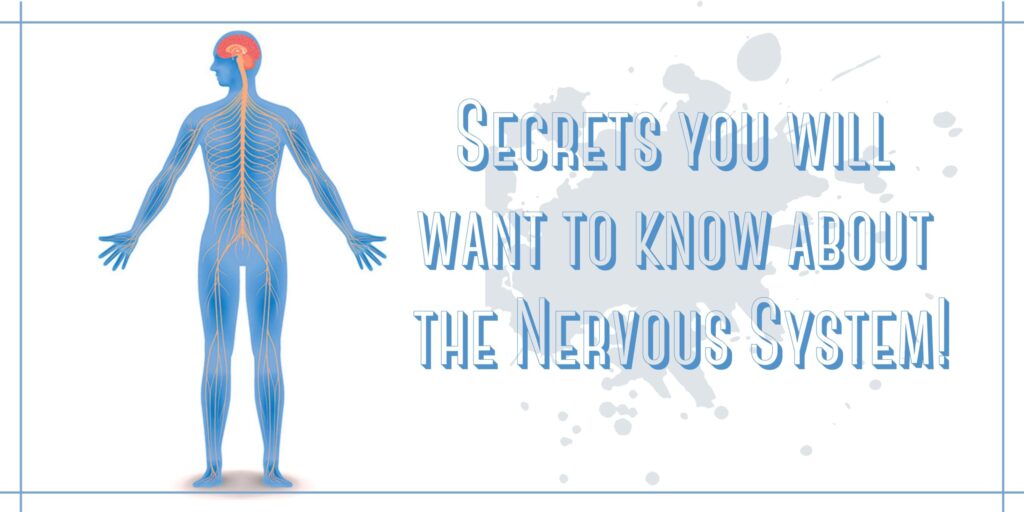Human nervous system functions
The human nervous system functions as the command-and-control hub of your body. Your motions, thoughts, and instinctive responses to the environment around you are all controlled by this system, which originates in your brain. It also regulates the functions of other physiological processes and systems, such as digestion, respiration, and puberty. Controlling, regulating and conveying the body’s functions is the primary role of the nervous system. Thought, learning, and memory all take place in the brain’s core. The neurological system and the endocrine system work together to maintain and regulate homeostasis. Homeostasis is the process through which the body adjusts to alterations in order to maintain constant internal conditions, such as temperature. The nervous system’s receptors allow us to stay in touch with both the outside world and our own bodies. The nervous system, like other bodily systems, is made up of organs, primarily the brain, ganglia nerves, and spinal cord. Connective tissue, blood and nerves are some components that make up the body’s systems. The nervous system’s complex operations are carried out by these elements working together.
Sensory, integrative, and motor functions are broad, overlapping categories under which the nervous system’s different functions might be classified. The human nervous system functions entail detecting changes in the body’s internal environment as well as exterior ecological factors. Tons of sensory receptors register changes in the body’s environment, known as stimuli. Temperature, light, and sounds from the outside world are all monitored. Receptors sense changes in pressure, pH, co2 concentration, and the quantities of different electrolytes within the body, or the internal environment. Sensory input refers to all of the information acquired. Nerve signals are electrical signals that are delivered to the brain from sensory input. There, the signals are combined to generate feelings, ideas, or memories; decisions are made in real-time depending on the sensory input. This is what integration entails. The nervous system responds to sensory input and integration by transmitting signals to muscles, prompting them to contract, or glands, causing them to generate secretions. Effectors are muscles and glands that produce an impact in response to commands from the neurological system and are known as the motor function or output.
The human nervous system functions make up two parts: information transmission and integration. The Central Nervous System (CNS), Peripheral Nervous System (PNS), Somatic Nervous System, Autonomic Nervous System, Sympathetic Nervous System, and Parasympathetic Nervous System are the basic components of the nervous system. There are two parts to the central nervous system (CNS): brain and spinal cord. Your nerves carry information from your brain to your body. Each nerve has a protective layer called myelin which insulates the nerve while enabling messages to flow. The peripheral nervous system (PNS) contains neurons that communicate with the brain, muscles, organs, and senses. Somatic and autonomic nerve systems are parts of the Peripheral Nervous System. Involuntary movements are assisted by the somatic nervous system. The autonomic nervous system connects the brain to the body’s organs. The autonomic nervous system has two sections: the sympathetic and parasympathetic nervous systems. The sympathetic nervous system triggers the body’s fight-or-flight reaction as stressful or energy-demanding jobs need the body to prepare. The parasympathetic nervous system strives to save energy by informing the body to sleep and relax.
If you experience abrupt loss of coordination or physical weakness, see your doctor. If you suffer visual problems, headaches, unsteadiness in your legs or arms, tremors or tics such as unpredictable muscular contractions, changes in behaviour or memory, or a loss of coordination or muscle movement, consult your physician. The human nervous system functions include the stimulation of a particular collection of receptor organs known as sense organs, which are related to the nervous system, produces special sensations such as listening, sight, taste, and smell. Your nervous system serves as the brain and authority core for the rest of your body. The Nervous System requires regular maintenance in order to continue to perform effectively. Regularly see your doctor, maintain a nutritious diet, avoid drugs, and drink alcohol only in moderation if needed. Managing illnesses that might hurt your nerves, such as diabetes, is the greatest way to evade nerve damage. Exercise frequently, get plenty of sleep, stay cognitively engaged, drink lots of water and other fluids, protect your nerves with B vitamins, and stay socially involved to maintain your nervous system healthy.



